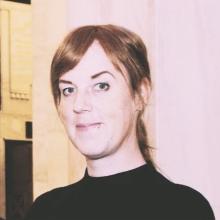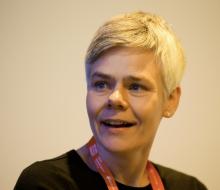Summary
Disclaimer: This summary has been generated by AI. It is experimental, and feedback is welcomed. Please reach out to info@qconlondon.com with any comments or concerns.
Presentation Title: Changing Power Dynamics: What Senior Engineers Can Learn From Junior Engineers
Speaker: Beth Anderson
Summary: This presentation addresses the traditional hierarchical dynamics in engineering teams where senior engineers typically dominate decision-making and mentorship roles. It argues that this can stifle innovation, discourage fresh perspectives, and create collaboration barriers. The talk explores fostering an environment of mutual growth, psychological safety, and continuous learning.
- Power Dynamics: The presentation discusses the concept of power distance, originally defined by Gert Hofstede, which highlights issues in high power distance cultures where juniors might feel unable to express disagreement or propose new ideas.
- Psychological Safety: This is emphasized as a crucial factor for a thriving work environment, allowing all team members to speak up without fear of retribution. The four stages of psychological safety are outlined to create this environment.
- Reverse Mentoring: The talk advocates for reverse mentoring, where junior engineers can mentor senior staff, providing fresh perspectives and insights into modern trends.
- Practical Strategies: Suggestions include actively listening, celebrating curiosity, encouraging questions, and dismantling hierarchical barriers to enhance collaboration.
- Organizational Changes: Practical changes such as implementing onboarding plans for juniors and using decision records are recommended to foster an inclusive and innovative culture.
Conclusion: Embracing a mindset of curiosity and openness can help senior engineers enhance their skills and contribute to a more inclusive and empowering engineering culture. The session concludes with a call to rethink the power structures and learning dynamics within engineering teams.
This is the end of the AI-generated content.
Abstract
In many engineering teams, senior engineers make the decisions and are responsible for mentoring and teaching junior team members. This rigid hierarchical dynamic can stifle innovation, discourage fresh perspectives, and create barriers to collaboration. How can we change this? This talk explores what issues can arise from a high power distance, how senior engineers can actively learn from their junior counterparts, and how to create an environment of mutual growth, psychological safety, and continuous learning.
We’ll discuss strategies for reducing hierarchical barriers, embracing reverse mentorship, and the unique insights that newer engineers bring to the table. By adopting a mindset of curiosity and openness, senior engineers can not only strengthen their own technical skills but also cultivate a more inclusive and empowering engineering culture.
Key takeaways:
- Rigid hierarchies can stifle fresh perspectives, limit collaboration, and discourage innovation. At worst, a high power distance can actually be harmful.
- Junior engineers bring unique insights, fresh problem-solving approaches, and knowledge of emerging technologies that senior engineers can benefit from. Senior engineers should embrace mentorship from their junior counterparts which can strengthen both their technical and leadership skills.
- Strategies to flatten power dynamics and create an environment where all team members feel safe to contribute fosters mutual learning and plants the seeds of a more inclusive culture.
Speaker

Beth Anderson
Principal Software Engineer @BBC Digital Distribution
With 30 years of industry experience Beth works as a Principal Software Engineer in Site Reliability Engineering at BBC Digital Distribution, the department that handles the BBCs audio and video output and currently provides 2.5 petabytes of on-demand content. Beth is a co-organiser of the London Gophers meet-up and lives on a boat with a small dog.





